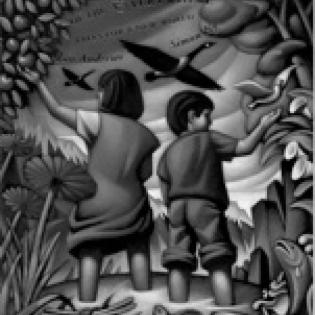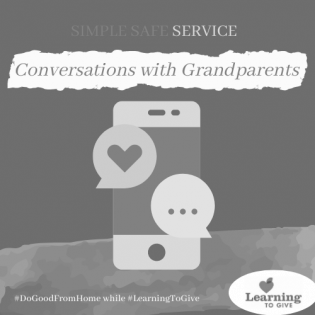Based on researched information, participants write a bio-poem about a philanthropist.
Filter by subjects:
Filter by grades:
Filter by audience:
Filter by issue area:
Filter by content type:
Filter by resource type:
resource search
After researching the life and work of a chosen philanthropist from history, the learner takes on the role of that philanthropist in writing a letter back to the learner. In this letter, the philanthropist shares their motivations and feelings about their work, and compares and contrasts...
This secondary lesson explains what the U.S. Census is and why it is important for everyone. Every ten years, we count everyone who is living in the U.S., from babies to the oldest people. This gives our government a clear idea of who is using services and where we have growth or decrease in...
Tell me a story...
Everyone brings something to a new country. Part of what Sayed brought was a terrible fear of never having enough. He had his reasons. In the small village he had come from, he had had so little.
Philanthropy is about generosity in all its many forms, commonly referred to as gifts of “time, talent, and treasure.” For this activity, you will learn how people can combine these gifts for even greater impact.
A Simple Safe Service project from home: Interview a grandparent or elderly friend to find out what they did for fun when they were young, and how it is the same and different than you. Follow your phone or video interview with a card in the mail. Or make friendly door hangers to donate to a local home for senior residents.
In this activity participants experience the appreciative inquiry approach of “looking at the good stuff in their organization and/or community.” Youth will look at organizations and communities as ‘half-full’ with potential, rather than ‘half-empty.’
In this activity participants learn through physical experience how people are involved in communities and introduce the idea of “holding in trust” through a physical activity.
George Washington Carver was a teacher, agricultural scientist and inventor who served Tuskegee Institute in Alabama for forty-seven years. He made many contributions to the world and the environment, including developing revolutionary crop rotation theory that helped conserve land from overuse. He educated and empowered farmers in agricultural techniques, particularly in the American South and founded the Carver Research Foundation.
Servant leaders are people who practice a leadership philosophy that “enriches the lives of individuals, builds better organizations, and ultimately creates a more just and caring world.” For this activity, youth create their own oral history recording by interviewing an individual who they consider a servant leader. Youth will glean lessons from the interview and create and preserve a historical record of a story that is worthwhile knowing.


